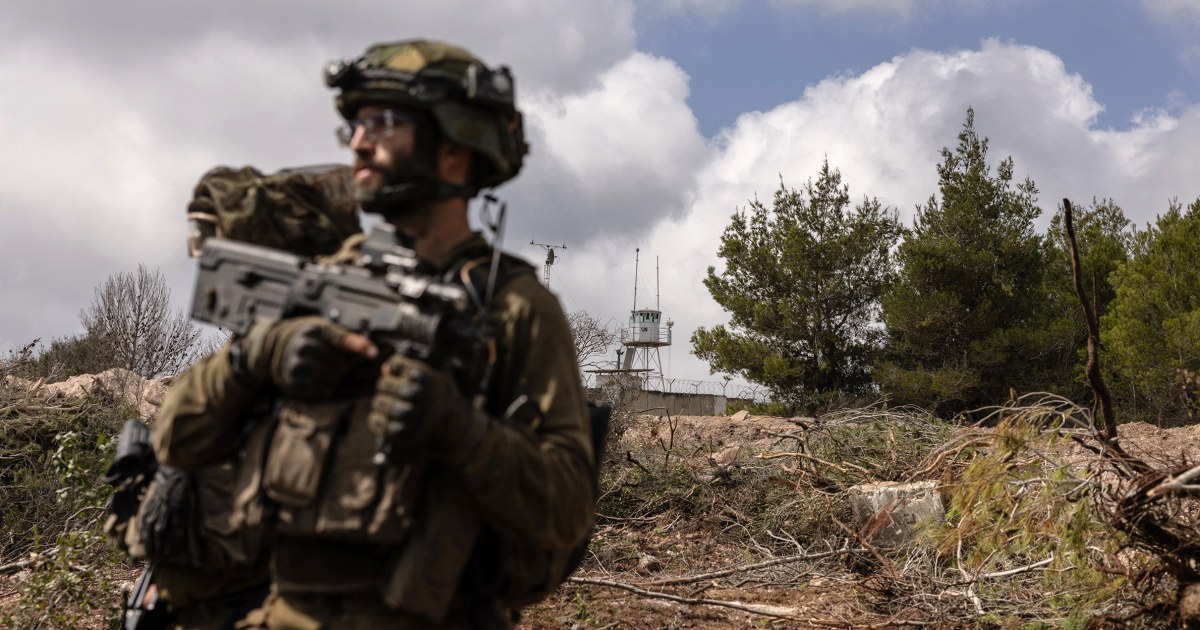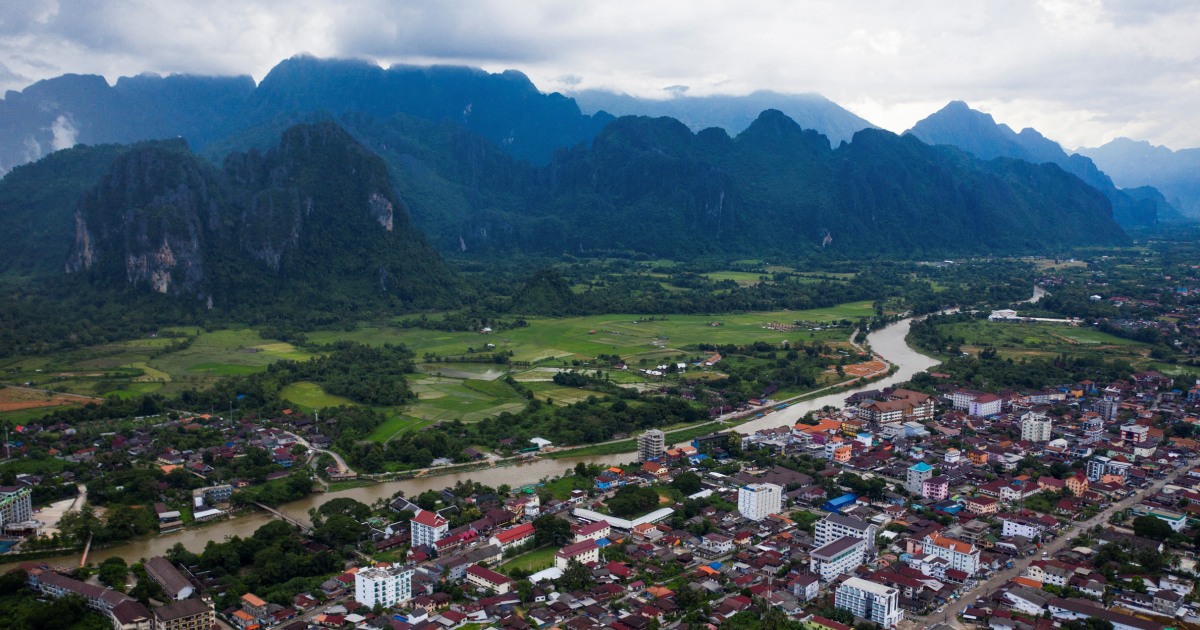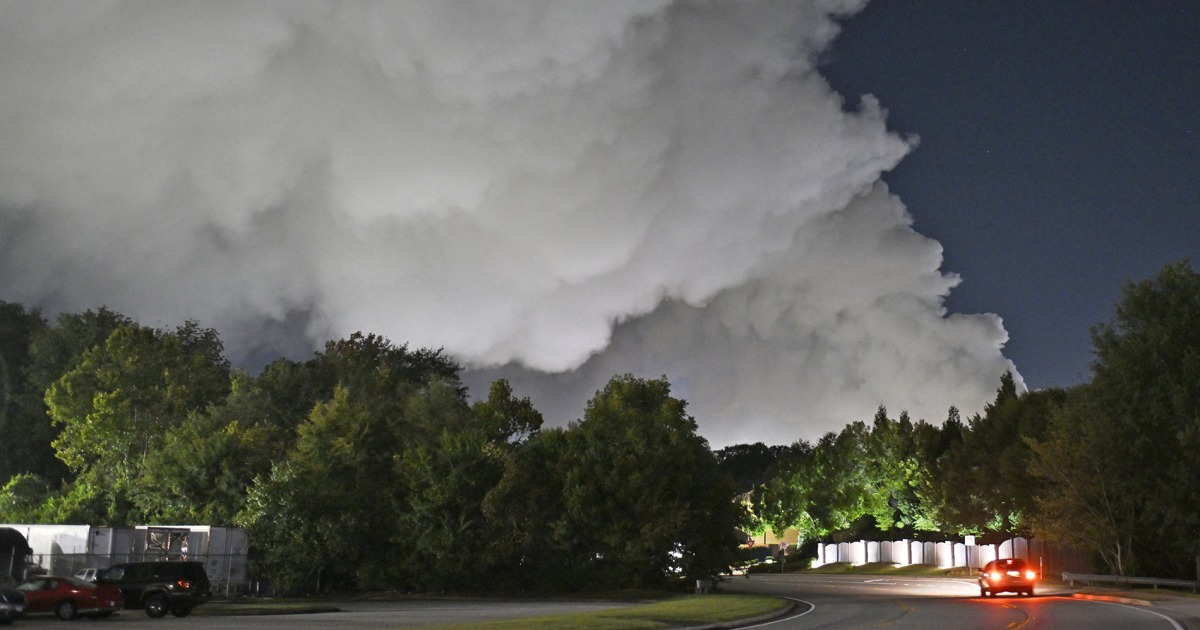The United Nations said it wouldn’t bow to pressure to withdraw its peacekeepers from southern Lebanon despite its forces coming under fire and repeated demands from Israeli Prime Minister Benjamin Netanyahu that they move out of the area.
The United Nations Interim Force in Lebanon, known as UNIFIL, will stay in “all its positions,” including those near the border with where Israel is fighting Iran-backed Hezbollah, the head of peacekeeping operations Jean-Pierre Lacroix told reporters in New York on Monday.
He added that the decision to keep them in place had the full backing of both the U.N. Security Council and the member states contributing troops to the force, which Israel says has failed in its mission to stabilize the area as Hezbollah’s presence has grown.
Adversaries for decades, the sides have been clashing since the Iran-backed group started firing rockets over a year ago in solidarity with ally Hamas after the Palestinian group’s terror attack on Israel killed 1,200 people and saw 250 taken hostage. More than 42,000 have been killed in Gaza in the ensuing war, according to local health officials.
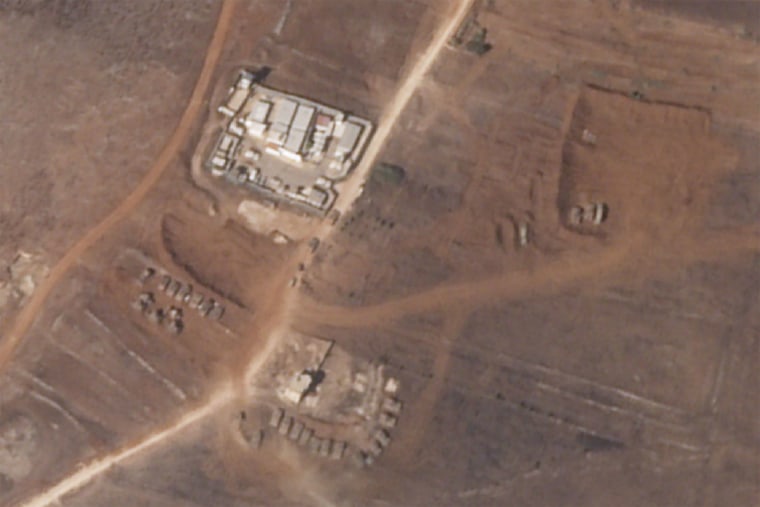
The fighting near the Israel-Lebanon border has prompted hundreds of thousands of people on both sides to flee their homes. In recent weeks Israel doubled down on its offensive after widespread bombing of Lebanon began on Sept. 17 when pagers belonging to members of Hezbollah, long Iran’s most powerful proxy force, exploded across the country.
On Oct. 1, Israeli troops crossed the border after the country’s military leaders declared a new phase in the war.
Lecroix’s comments came after the U.N. Security Council expressed “strong concern” at a meeting held to discuss the four UNIFIL soldiers who were injured after Israel fired on their positions last week. A fifth was injured by gunfire during military activity although it was unclear who fired the shot.
The series of events drew international criticism, as Spain, France and Italy condemned the incidents. President Joe Biden’s assertion that he is “absolutely, positively” asking Israel to stop hitting peacekeepers underscored just how far the situation has spiraled.
UNIFIL, which was established by the U.N. Security Council in 1978 after Israel’s first invasion of Lebanon, also accused the Israel Defense Forces of shooting its cameras, destroying its main gate, and forcing entry into one of its positions.
The Israeli military has promised to investigate some of the incidents, which came as it continues to fight Hezbollah forces in the region.
In a video address on Sunday, Netanyahu said UNIFIL was providing “a human shield to Hezbollah terrorists,” and appealed directly to U.N. Secretary-General Antonio Guterres to get U.N. peacekeepers “out of harm’s way.”
Ahmed Benchemsi, Human Rights Watch spokesperson for the Middle East, told NBC News that there is “absolutely no justification” to fire upon U.N. forces.
“Peacekeeping operators are considered civilians, even if they’re armed,” he said, adding that it was vital UNIFIL remained on the ground.
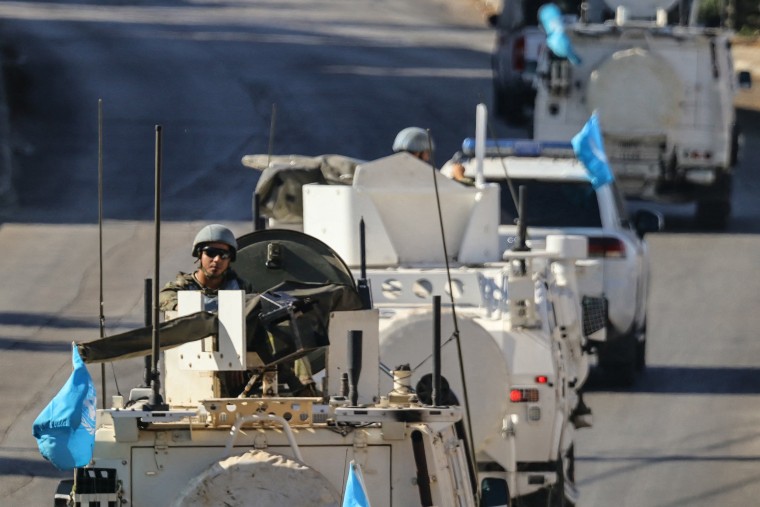
Shortly after Netanyahu’s video was released, UNIFIL spokesperson Andrea Tenenti disputed IDF claims that UNIFIL forces are in effect, providing cover for Hezbollah.
Israel has long had a tense relationship with the United Nations, which has deteriorated significantly since Oct. 7, most notably when Israel accused staff from UNRWA, the U.N. agency for Palestinian refugees, of collaborating with Hamas.
UNRWA fired nine staff members after an internal investigation, but the U.N. also not shied away from criticizing Israel’s military operations in both Gaza and Lebanon.
Netanyahu accused the U.N. of being an “anti-Semitic swamp” during his address at the organization’s General Assembly in September, and Israel’s foreign minister Israel Katz has declared general secretary Guterres “persona non grata,” banning him from entering Israel.
In the backdrop of its invasion of Lebanon, Israel is also weighing up its response to the missile barrage launched by Iran earlier this month, sparking fears that a massive retaliation could stoke a wider regional conflict.
But Netanyahu has told the U.S. that it is prepared to launch a more limited counter-strike aimed at preventing a full-scale war, and will target the nation’s military infrastructure and not its nuclear or oil facilities, according to a report in The Washington Post.
Biden has said publicly that he would not support an Israeli strike on Iran’s nuclear sites, while reaffirming the country’s “right to respond” to the October attack.
In a statement to the Post, Netanyahu’s office said, “We listen to the opinions of the United States, but we will make our final decisions based on our national interest.”


